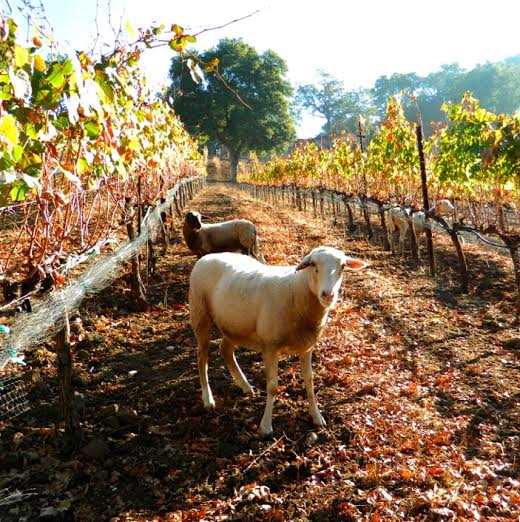
– Adelaida Cellars, located on the westside of Paso Robles in the heart of the Adelaida District, has completed 82 prerequisites to be called a Certified California Sustainable Winegrowing Winery & Vineyard.
Created by Wine Institute and the California Association of Winegrape Growers, the California Sustainable Winegrowing Alliance is a nonprofit organization that promotes the benefits of sustainable winegrowing practices, enlists wine industry commitment and assists in implementation of the Sustainable Winegrowing Program.
The prerequisites cover a series of factors from harvest operations at the winery to soil nutrient monitoring in the vineyard. The first step is an annual self-assessment on the 138 vineyard and 103 winery best practices, which must be met and reviewed by a third-party audit. As part of the application process, Adelaida Cellars prioritized its sustainability areas including: water conservation, energy efficiency and environmentally conscious farming. Accomplishing these individual company goals and creating a plan for continuous improvement are the key factors to earning the accreditation.
“For years, we have carefully farmed our vineyards with earth-friendly practices,” said Jessica Kollhoff, general manager. “The certification process allowed us to reevaluate practices and set necessary milestones in both the vineyards and the winery; ultimately moving us toward our vision to create a legacy of excellence in crafting world-class wines from our estate vineyards. Sharing this designation with our customers during California Wine Month is a natural fit.”
Water conservation is a key area of focus especially during a four-year drought. Adelaida’s estate vineyards are located 14 miles from the coast and range in elevation from 1,600 to 1,900 feet. Calcareous limestone soils retain water from winter and spring showers and release necessary moisture to the vines and trees slowly throughout the season. Even through the drought, one third of the vineyards and 90-percent of the property’s total crops, which includes walnuts and almonds, are dry farmed.
A weather station on the property allows winemaker Jeremy Weintraub to track rainfall, relative humidity and heat in vineyards. Weintraub says that he relies on soil moisture probes, which are inserted three feet into the soil and connect to the weather station to calculate soil moisture content. “I am in the vineyard daily looking, listening and understanding how the vines are growing to assess the vigor and health of the vine,” said Weintraub. “The vines look surprisingly healthy this year and we expect super concentrated flavors in the 2015 vintage. “
In addition to technology with the vines, the newly remodeled winery utilizes several water conserving tools, including the use of pressurized hoses for cleaning, applying recycled grey water for dust control and collecting storm water in two estate ponds for fire protection.
Adelaida provides 85-percent of its power needs through a 113-kilowatt solar panel array. The hospitality center, which is currently being built, was designed with multiple green building measures: low-flow plumbing fixtures, high efficiency LED lighting, natural daylight windows and exterior sun shading. The winery also incorporated several energy efficient processes including utilizing night cooling, which automatically brings cool exterior air inside to cool the production facility.











